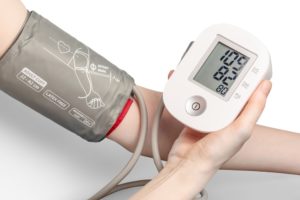ThursdayThoughts
As promised, each Thursday, we will now offer you a piece of educational, science, or research-related information. The purpose of our #ThursdayThoughts post is to share with you fact-based content that can enlighten and assist you on your fertility journey. Enjoy our post! Helping to Create New Beginnings…
Hypertension and Fertility
Hypertension (HTN) or high blood pressure is a condition when your blood pressure (BP) is consistently high. This is due to the force of blood against the arterial walls being elevated. Hypertension is diagnosed when the systolic BP is greater than or equal to 140mmHg and the diastolic BP is greater than or equal to 90mmHg on two different readings. If blood pressure is not controlled, it can lead to other conditions such as heart failure, vision loss, sexual dysfunction, heart attack, and stroke.
Some women may not know they have hypertension prior to undergoing any fertility evaluation or treatment. If a diagnosis of hypertension is suspected, it is recommended to follow up with a primary care provider (PCP) for evaluation, management, and treatment. Good blood pressure control is necessary as certain fertility medications such as Femara or letrozole can increase blood pressure.2 For fertility patients, stable, controlled blood pressure is imperative. Women without good control that get pregnant after fertility treatment have an increased risk for pre-eclampsia, fetal growth restriction, and other poor fetal outcomes.
Hypertension can be managed in several ways. Modifying diet and exercise are also beneficial to achieve good BP control. Avoiding foods high in salt such as canned, processed, and fast food can help decrease BP levels. Also adding routine physical activity such as walking or jogging can improve your BP readings. In addition to lifestyle modifications, HTN can be managed with the use of medication. If you have already been diagnosed with hypertension, we recommended following up with your PCP to ensure that any BP medication you are taking is safe in pregnancy.
Men with hypertension may have an abnormal semen analysis. These men had lower semen volume, sperm count, and motility. Men also taking certain hypertension medication can have problems with erection and/or ejaculation. For example, alpha-blockers can contribute to retrograde ejaculation thus decreasing semen volume.1
For more information regarding evaluation and treatment options that are available, please schedule an appointment with one of our providers at the Fertility Institute of Hawaii 808-545-2800 or visit our website at https://www.ivfcenterhawaii.com

Guo, David et al. “Hypertension and Male Fertility.” The world journal of men’s health vol. 35,2 (2017): 59-64. doi:10.5534/wjmh.2017.35.2.59.
Barekat, Maryam, and Shahnaz Ahmadi. “Hypertensive Disorders in Pregnant Women Receiving Fertility Treatments.” International journal of fertility & sterility vol. 12,2 (2018): 92-98. doi:10.22074/ijfs.2018.5232.